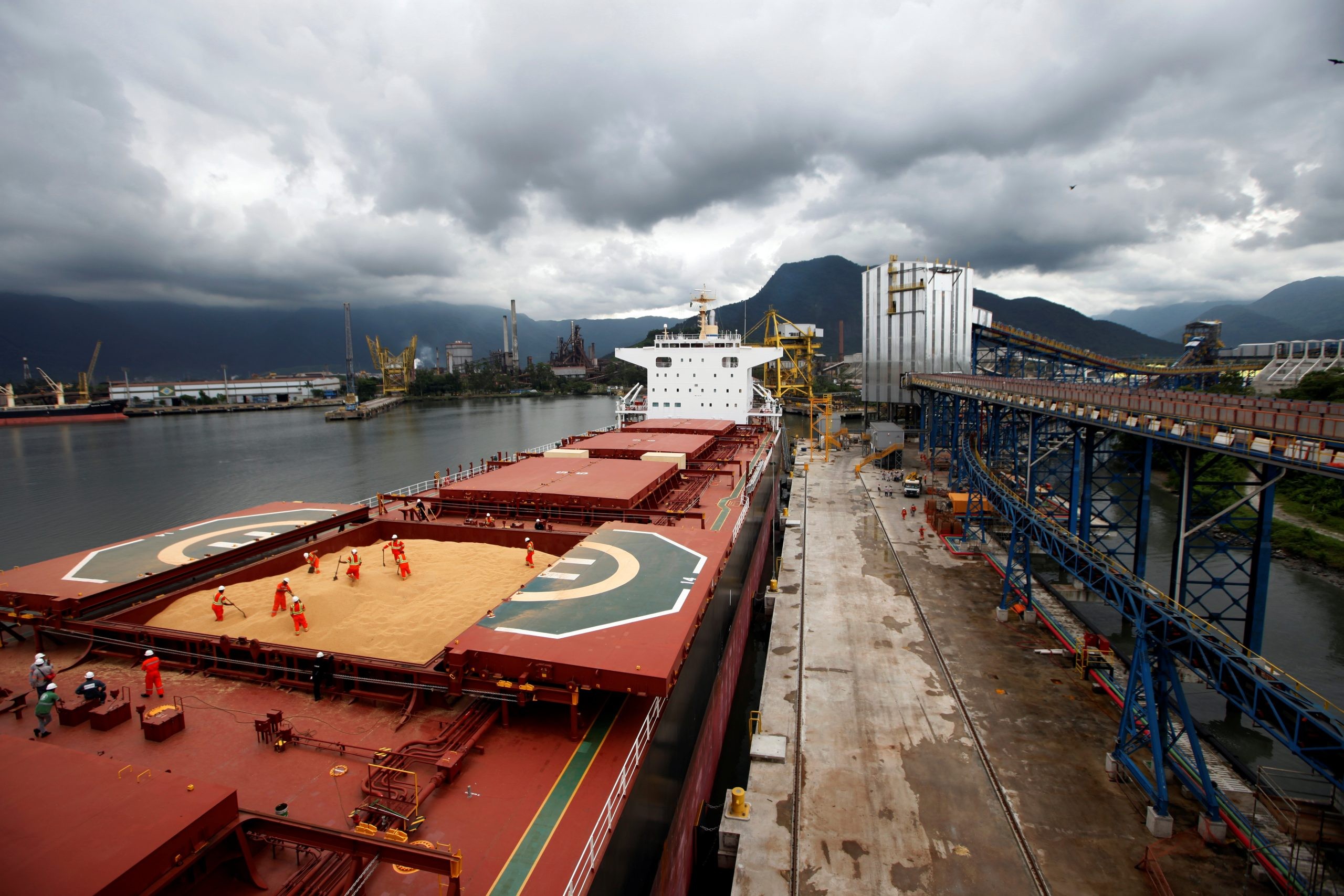Americas grains exports raising Panamax demand

High prices and increased demand for grains following the Russian invasion of Ukraine are raising grain export volumes from North and South America and increasing Panamax cargo demand.
“Sales and shipments of US corn have accelerated as Russia’s invasion has constrained exports from Ukraine, which has also kept prices elevated,” the US Department of Agriculture (USDA) said.
US agricultural export revenue is expected to hit a record $191b in fiscal year 2022, up almost $20b from the prior year and representing a nearly 43pc increase overall in export revenue since 2016, according to the USDA, with over 10pc of the total revenue attributed to “record volumes” of corn.
Higher bunkers prices, shifting trade flows, and strong demand have also raised grains freight rates.
The spot rate for a US Gulf coast to north China grain route was $80/t yesterday, according to a shipbroker, up over 23pc since the day before the invasion of Ukraine began on 24 February. Additional Argus data shows that freight rates for grain-carrying Panamax routes in the Atlantic and Pacific hit all-time highs in the weeks following the onset of the war in Ukraine.
Grains export demand in South America is also rising.
“South America is expected to have strong corn volumes in the coming months from record production, also helping to fill the gap left by lower Ukrainian exports,” the USDA said.
Along with corn, the South American production and export of wheat is expected to rise significantly, with a “paradigm shift” of 34pc of Brazilian wheat production to be exported compared to the typical 10pc.
Such wheat export gains may counteract sluggish wheat exports out of the US. US wheat export competitiveness has been reduced by drought impacting winter wheat crops, according to the USDA, although the reduction in supply has nonetheless “kept unit values elevated at multi-year highs”.
The rate for grains shipped by Panamax bulkers on the Santos to Qingdao route was $72.90/t today, an increase of over 30pc since the day before the invasion.
South American agricultural production may be constrained somewhat by the reduced availability and higher prices of imported fertilizers, which Brazilian farmers depend on. One of the largest global suppliers of fertilizers, Eurochem, is currently struggling to maintain operations after the European Council placed sanctions on the company’s chief beneficiary.
Write to us
Our manager will contact you soon



